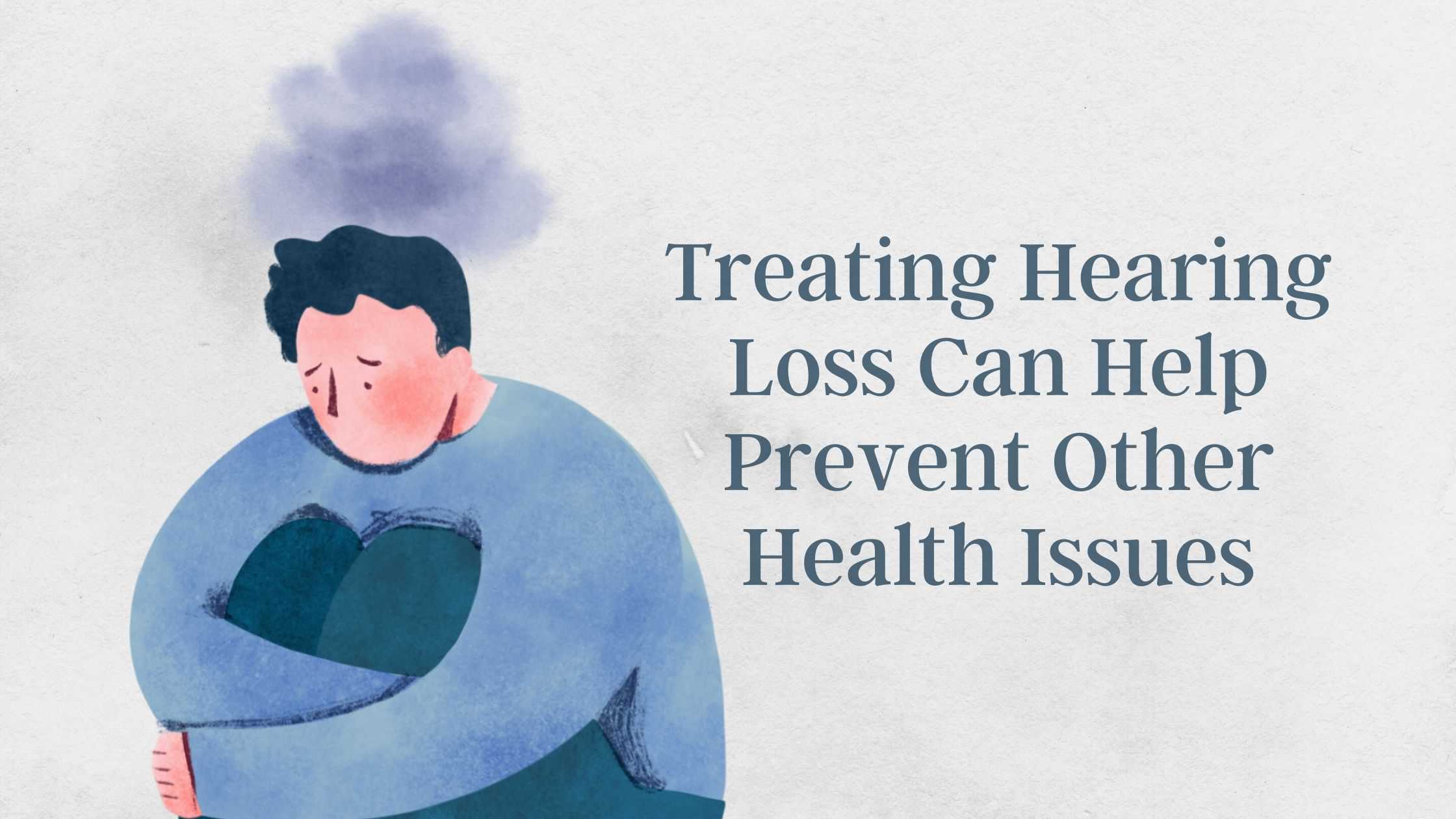
It is often assumed that hearing loss only impacts hearing. But hearing health is integral to overall health and wellness. Impaired hearing, a condition that impacts over 48 million people, has multifaceted effects. This includes straining communication, relationships, social engagement, and one’s health. Extensive research shows that untreated hearing loss increases the risk of developing additional medical conditions. This includes cognitive decline and related conditions like dementia, depression, and accidental injuries. Fortunately, treating hearing loss can transform hearing and prevent these health risks.
Hearing Loss Symptoms & Impact
To understand how untreated hearing loss contributes to other health issues, it is important to understand the symptoms and impact of impaired hearing that remains untreated. This includes:
- Tinnitus: a ringing or buzzing-like noise in one or both ears.
- Sounds are muffled, slurred, or distorted.
- Frequently asking others to repeat themselves, speak louder, and/or slower.
- Missing words or parts of a conversation.
- Lip reading to help identify individual words.
- Struggling to follow conversations, especially in settings with background noise.
These symptoms can be mild to more severe, depending on the degree of hearing loss present. They often take a toll on communication, making it challenging to participate in conversations. Strained communication can lead to people withdrawing from conversations and social interactions altogether.
Social withdrawal is a major outcome of untreated hearing loss. This means skipping out on social activities and spending time with loved ones. Not only can this impact relationships and social connections, but it can also take a toll on mental health. Strained communication, relationships, and mental health impacts overall health in countless ways.
Cognitive Decline
Extensive research shows that hearing loss impacts brain health. Studies highlight a correlation between hearing loss and cognitive decline which increases the risk of developing conditions like Alzheimer’s. This includes a study that involved 10,107 participants whose hearing and cognitive health were assessed over 8 years. Researchers found that cognitive decline was 54% higher for people with severe hearing loss. These findings highlight that people with hearing loss were significantly more likely to also experience cognitive decline. Researchers suggest that this is due to reduced activity of the areas of the brain that are responsible for processing auditory information. These areas can shrink, affecting cognitive function.
Studies have also shown that hearing aids – the most common treatment for hearing loss – alleviate the risk of cognitive decline by strengthening cognitive functions. Hearing aids provide the ears and brain with ample support, making it easier to hear and process sound. This strengthens neural networks and areas of the brain that are responsible for speech and language comprehension.
Depression
Untreated hearing loss can also increase the risk of developing depressive symptoms. A 2015 study showed that people with hearing loss can be more than twice as likely to experience depressive symptoms – loneliness, isolation, sadness, etc. Experts suggest that this is due to the social withdrawal that often happens as a result of untreated hearing loss. Studies show that hearing aids can also transform mental health by supporting people to navigate communication more effectively.
A 2016 study that evaluated the impact of hearing aids and cochlear implants on depressive symptoms in older adults found that among hearing aid users, depressive symptoms improved by:
- 28% after 6 months of wearing hearing aids
- depressive symptoms continued to decrease, by 16% at the 12-month mark
These findings show that wearing hearing aids drastically alleviates depressive symptoms. Hearing aids create a greater capacity to engage in conversations and move through social settings, with much more ease. This supports an active social life and improves relationships which boosts happiness and wellness.
Accidental Injuries
Another health risk of untreated hearing loss is accidental injuries. Studies have shown that people with hearing loss can be nearly three times more likely to have a history of falling. Falls contribute to injuries which can impact mobility and also increase health care costs. Treating hearing loss effectively addresses this by increasing spatial awareness. Hearing aids allow people to hear much more clearly in the environments they navigate daily. This enables people to be in tune with any potential hazards or warning signs they may encounter. Increased spatial awareness reduces the risk of experiencing falls.
